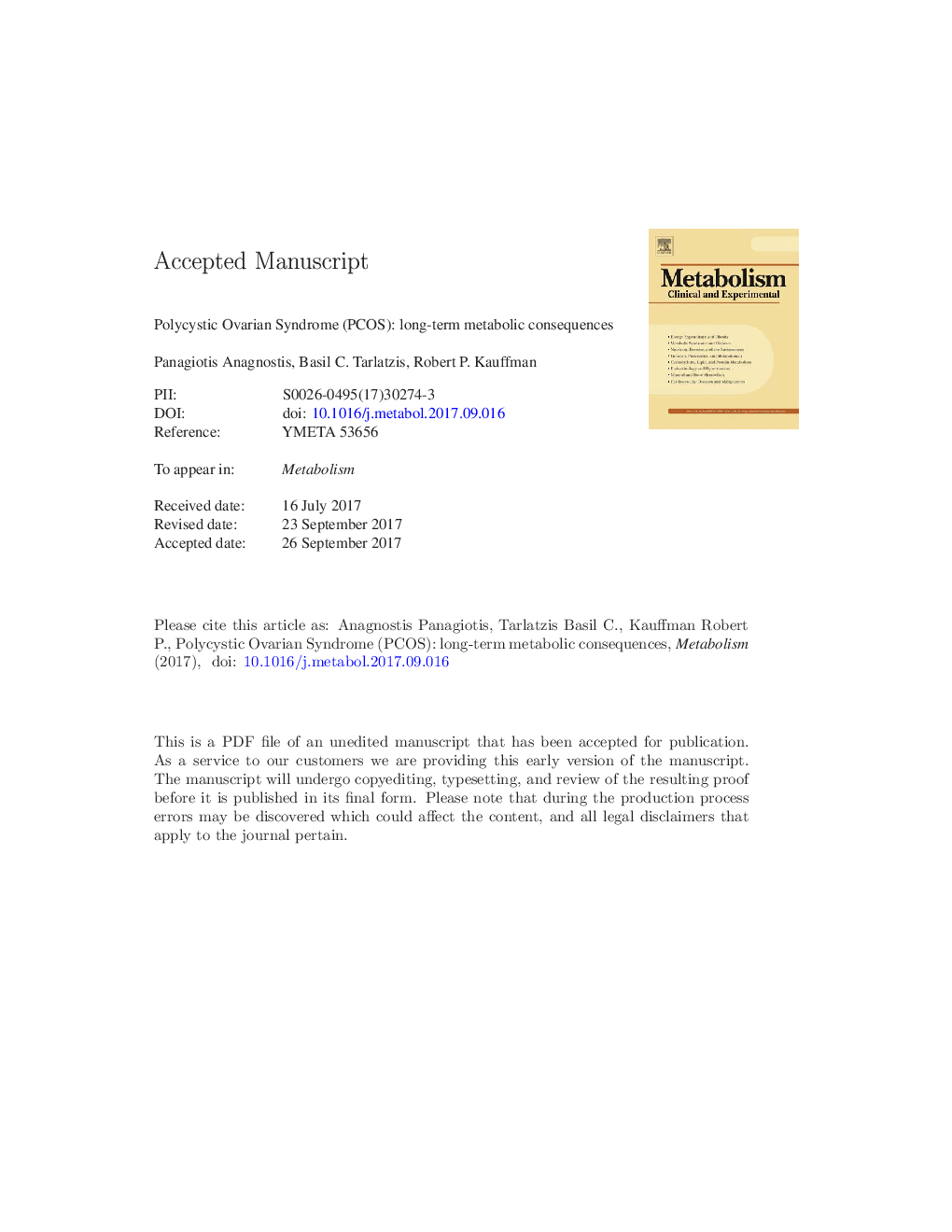| Article ID | Journal | Published Year | Pages | File Type |
|---|---|---|---|---|
| 8632836 | Metabolism | 2018 | 44 Pages |
Abstract
Polycystic ovary syndrome (PCOS) is the most common endocrine disorder in women during their reproductive ages, associated with a plethora of cardiometabolic consequences, with obesity, insulin resistance and hyperandrogenemia playing a major role in the degree of such manifestations. These consequences include increased risk of glucose intolerance and diabetes mellitus (both type 2 and gestational), atherogenic dyslipidemia, systemic inflammation, non-alcoholic fatty liver disease, hypertension and coagulation disorders. Whether this cluster of metabolic abnormalities is also translated in increased cardiovascular disease (CVD) morbidity and mortality in later life, remains to be established. Data so far based on markers of subclinical atherosclerosis as well as retrospective and prospective cohort studies indicate a possible increased CVD risk, mainly for coronary heart disease. Future studies are needed to further elucidate this issue.
Keywords
ApoA-IOGTTCHDPAI-1IL-18WHtRCIMTIFGGDMFMDT2DMapoBMCP-1NAFLDNHLBIJICPCOSICAMIGTAHAESEIL-6PCOMPolycystic ovarian morphologyNCEP ATP IIIOral glucose tolerance testApolipoprotein A-IApolipoprotein Bimpaired glucose toleranceImpaired fasting glucoseDyslipidemiaAmerican Heart AssociationFlow-mediated dilationInterleukin-18interleukin-6National Cholesterol Education Program Adult Treatment Panel IIIcoronary artery diseasecoronary heart diseaseDiabetesFatty liver diseasenon-alcoholic fatty liver diseasetumor necrosis factor-αRelative riskGestational diabetes mellitusType 2 diabetes mellitusMetabolic syndromeCarotid artery intima-media thicknessCADconfidence intervalTNF-αMETSGenome-wide association studiesGWASInsulin resistanceplasminogen activator inhibitor 1National Heart Lung and Blood Instituteintercellular adhesion moleculehazards ratioWaist-to-height ratioodds ratiomonocyte chemoattractant proteinC-reactive proteinCRP
Related Topics
Life Sciences
Biochemistry, Genetics and Molecular Biology
Endocrinology
Authors
Panagiotis Anagnostis, Basil C. Tarlatzis, Robert P. Kauffman,
